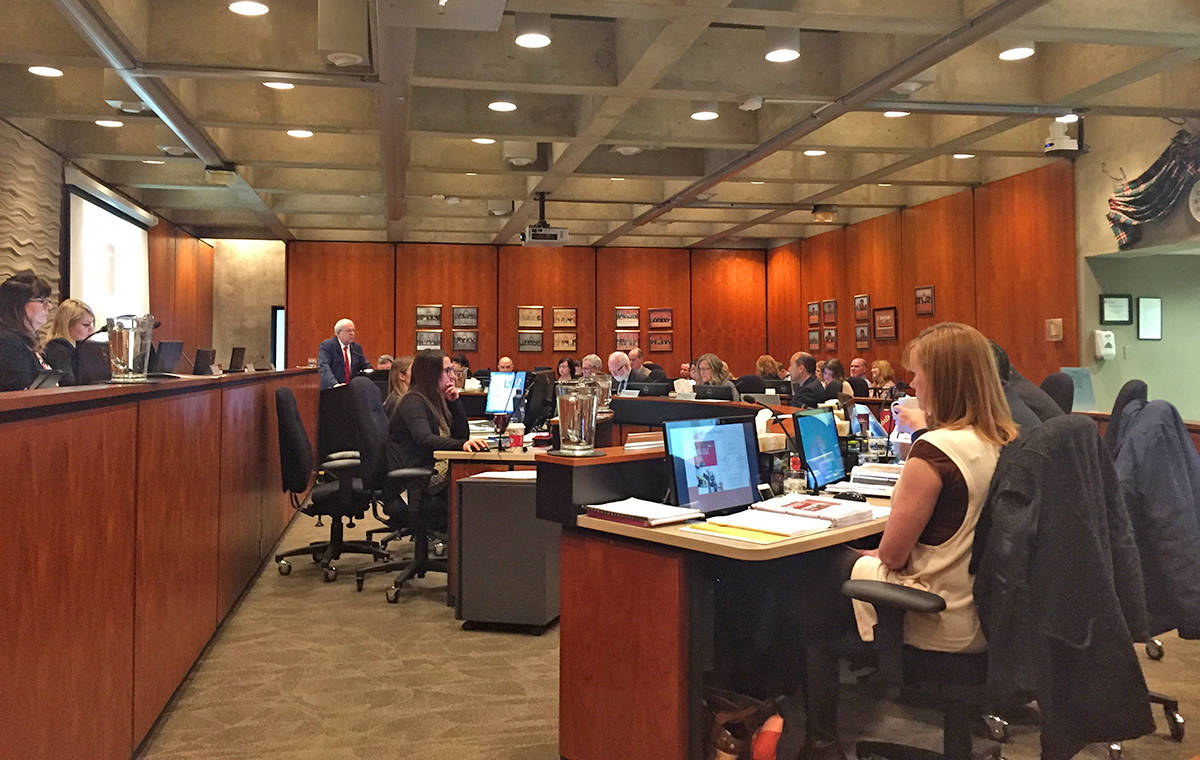Mayor Tara Veer said in looking at the overall Capital Budget for the City, she feels it responds to some of the more pressing needs in the community while being highly respectful towards the state of the local economy.
“As far as 2018 goes, I think on the whole, it really reflects the state of the economy and our community’s ability to fund the budget.”
On Nov. 29th, City council discussed the 2018 Capital Budget and Capital Plan from 2019 to 2027.
The budget, which is projected at just over $81 million, is the lowest in the last decade.
City Manager Craig Curtis and Chief Financial Officer Dean Krejci began the meeting with a presentation.
Curtis touched on the Citizen Satisfaction Survey, which showed that members of the public are satisfied overall when it comes to life in the City and their satisfaction with City services.
Krejci said the majority of the funding this year is out of reserves.
“So we’ve saved that money and now we’re using it to help fund this capital program,” said Krejci.
The bulk of the rest of it is split evenly between grants and debt.
When it came to infrastructure priorities, the survey showed that citizens are always mentioning roads as their top priority. Following behind roads is recreation facilities like public pools and ice rinks and then water treatment facilities in a close third.
“The Ipsos Survey certainly shows that roads continue to be an important area for the citizens. It is not as high as it was previously, and that is due to the fact that we have made a substantial investment in our road infrastructure over the last four or five capital budgets,” said Krejci.
The meeting, an unusually longer one, was due to a few factors according to Veer.
“First and foremost we continue to be in a recessed economy with some uncertainty around provincial and local economic conditions and particularly grants from other orders of government,” she said.
Another component is that there’s now a new council which has more questions and additional requests. Lastly, which didn’t come into fruition in today’s meeting, is that the City just used to debate the budget, not the Capital Plan.
“Now we are looking at the plan in principle, and so there’s more decision making junctures in the Capital Budget and plan as it’s presented.”
Among the many topics discussed was a debate on road infrastructure, which Councillor Ken Johnston had originally wanted to shave off money from to go towards pickleball.
He later changed his mind, and council recognized that they’ve made significant gains in closing the infrastructure deficit that existed on the roadways, and that moving forward they could likely realize some capital savings in that roads budget.
Members of council gave their input, the majority not wanting to decrease the amount in roads.
Councillor Tanya Handley said road infrastructure is a core service expected by citizens.
“The reason our roads are good is because we invest in them, so cutting back, it puts that at risk,” said Handley.
Veer said Curtis identified that he had already asked the department to reduce the amount of their budget request.
Another item discussed at length was fleet replacement vehicles.
There were some questions around what was included in the fleet replacement budget, as it’s a substantial component of the budget of just over $6 million.
That item has been suspended for now, due to more clarification needed on the type of fleet they’re talking about.
Riverside Meadows revitalization has also been identified in the long-term capital plan.
“The budget overall does identify infrastructure upgrades throughout the City, in terms of roads, roads maintenance, water and wastewater services, but there is a specific component in there for Riverside Meadows that’s recommended in the 10-year capital plan recognizing the state of the infrastructure there,” said Veer.
Other items of discussion included pavement rehabilitation, City Hall Park entrance upgrades, Collicutt Centre preservation and more.
Although Veer spoke positively on the budget, she did have some reservations with the capital plan and the long-term financial sustainability of that plan, particularly around off-site levies and the slow market uptake on development.
Budget deliberations continue Thursday.



